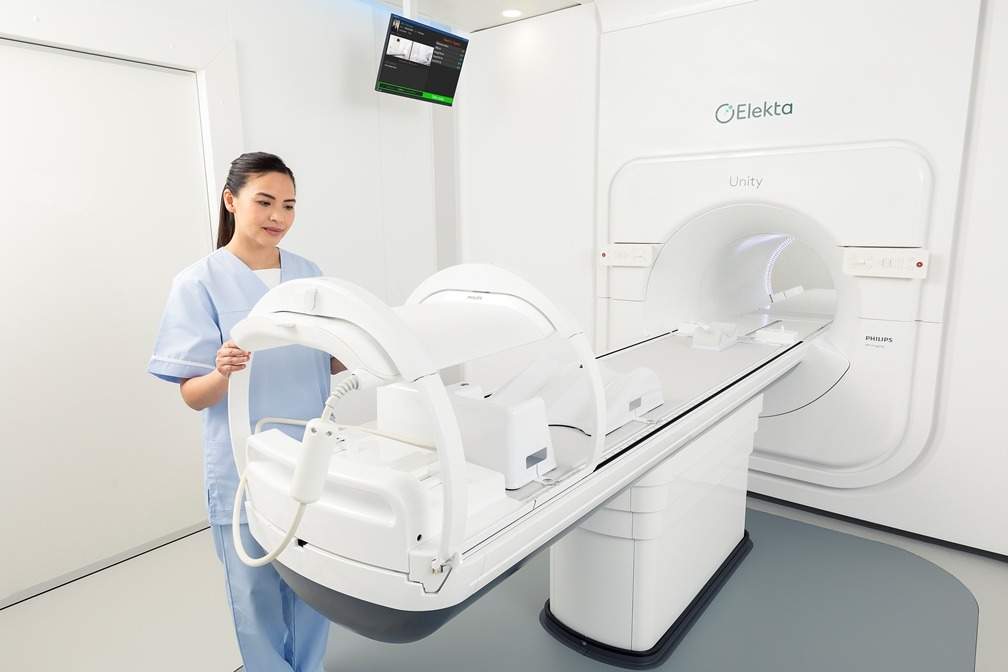The international MR-linac Consortium has launched a study to generate data that could allow the safe, fast and evidence-based introduction of magnetic resonance radiation therapy (MR/RT) into clinical practice.

Image: Elekta’s Unity MR/RT system. Photo: Courtesy of Elekta AB.
Precision radiation medicine firm Elekta established the MR-linac Consortium in 2012 with seven centers and its technology partner Philips.
The new study, which is the next step for the development of Elekta Unity MR/RT system, will focus on developing robust body of real-world clinical evidence and insights made possible by this technology.
Information obtained from the study will guide in the usage of MR/RT to improve outcomes for cancer patients.
University Medical Center Utrecht (UMCU) Evaluation of Innovation Professor and a member of MOMENTUM’s Management team Helena Verkooijen said: “Each treatment session on this innovative system is an opportunity to gain insight into the benefits that this technology provides and, critically, to determine which patients benefit from MR/RT therapy.”
Radiotherapy is an important component that many cancer treatment regimens and nearly 50% of all cancer patients receive radiation during their treatment journey.
As with several medical therapies for cancer, radiotherapy comes with its set of short- and long-term side effects, which can treatment-limiting and/or reduce patients’ quality of life during and after therapy.
Many of these side effects result from radiation-related damage to healthy tissue. The MR-linac system is claimed to have been designed to address this challenge by allowing for improved targeting of radiation to the tumor and reduced exposure of nearby tissues and organs.
Cancer centers participating in MOMENTUM study will ask patients if they are willing to share de-identified information about their treatment and subsequent experience, including tumor control rates and quality of life.
This information will be added to repositories that will allow researchers to assess the outcomes, enhance the product and evaluate alternative treatment approaches.
Elekta Medical Affairs and Clinical Research Vice President and MOMENTUM’s management team a member John Christodouleas said: “The MR-linac Consortium includes some of the world’s most talented and dedicated cancer researchers.
“By collaborating on the MOMENTUM Study, we expect to accelerate clinical innovations enabled by this breakthrough technology.”
The company stated that its Unity product can help in visualizing the tumor with high-resolution images during treatment through combining high-field MRI technology with a linear accelerator.
This will allow for precise delivery of the radiation dose, enabling higher dosing to the tumor bed while better sparing the surrounding healthy tissues.
